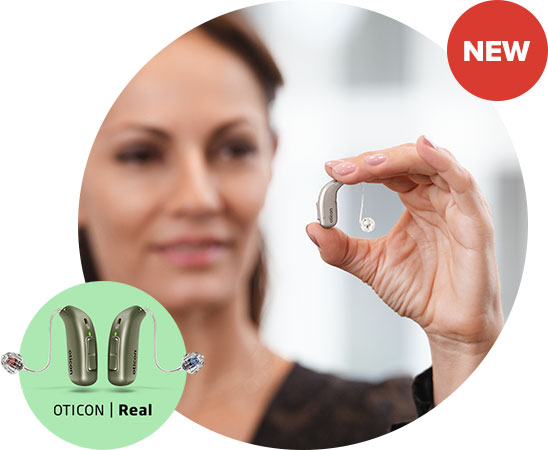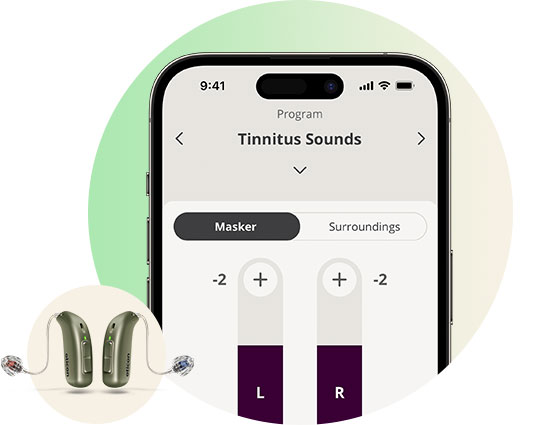Hearing aids can help alleviate tinnitus
In a 2017 study, nearly all participants with both hearing loss and tinnitus experienced a reduction in tinnitus symptoms with the use of hearing aids.2
Hearing aids help you access meaningful sounds by amplifying them, which allows you to shift your attention from the tinnitus to what's important to you and living the life you want.
Also, some of today's hearing aids have sound therapy programs built into them, which can provide additional relief for those who experience tinnitus.3
Causes of tinnitus






